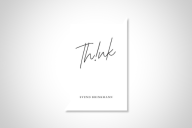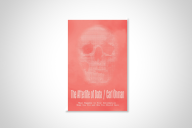You have /5 articles left.
Sign up for a free account or log in.
This may be a minority opinion, but I’ll stick by it: Nothing clarified the course of American politics quite like the 1996 election -- and in particular the presidential debate. First there was the stirring rhetoric of Kang: "The politics of failure have failed! We have to make them work again." Then came the statesmanlike reply of Kodos: "I am looking forward to an orderly election tomorrow that will eliminate the need for a violent bloodbath."
For any old-fashioned, television-averse academic readers out there, it might be good to explain that Kang and Kodos are two drooling, mono-eyeballed, multi-tentacled creatures from another galaxy who occasionally show up on "The Simpsons." In 1996, they kidnapped Clinton and Dole and took their places on the campaign trail. Nobody really noticed.
Kang’s catchy slogan about the politics of failure came to mind while reading Democracy at Risk: How Political Choices Undermine Citizen Participation, and What We Can Do About It, a new book published by the Brookings Institution Press. The title page lists 19 authors, all of them distinguished political scientists. (For a list, look here. ) They are scrupulously non-partisan -- almost transcendentally so. "Favoring a party has never been our aim," they write, "nor have we self-consciously striven for partisan balance; instead, we recommend what we think is best for the nation." They write with such sober, intelligent concern about the state of the republic that one cannot help feeling a little guilty for comparing them to extraterrestrials hell-bent on earth’s domination. I’m sure that most of them have no such intent.
But it sometimes happens that sober, intelligent books that straddle the divide between scholarship and public-spirited worrying can be a source of frustration. Democracy at Risk is a case in point. Not because it is hysterical or outlandish. Far from it. Rather, it's so level-headed as to be somewhat anodyne. Which is strange, because parts of the report are fairly troubling to think about. Decorum is a fine thing, but not always the most suitable. Sometimes yelling is appropriate.
The team putting Democracy at Risk together started out, three years ago, as a task force of the American Political Science Association. It was charged with "bring[ing] the insights of political science to bear on the problem of civic engagement."
The latter phrase refers the American public's steady, long-term trend towards increasing apathy, ignorance, and passivity in regard to all things political.
Increased voter turnout in 2004 was, seemingly, an exception to the trend. It was widely regarded as the most important presidential race in recent memory. Between 59 and 60 percent of those registered to vote actually did. Democracy at Risk puts that in context by noting that the level of participation "was about the same as in 1956, when an incumbent president handily and predictably defeated the same challenger he had faced four years earlier." And in spite of a massive get-out-the-vote effort "in which interest groups alone spent more than $350 million," the turnout "was only 5 percentage points higher than in 2000."
Calling this a case of "the problem of civic engagement" is more neutral-sounding than references to apathy, ignorance, and passivity. It has the advantage of avoiding the censorious overtone of those words. The authors cite Plato and Aristotle as the founding fathers of their discipline. But perhaps it would have been more fitting to take their inspiration from Confucius (the forerunner of an astute, brass-tacks kind of poli sci). For as Confucius put it, you can begin to rectify the order of things only by giving them their proper names.
Chart after chart in Democracy at Risk shows the downward curve of almost any index of participation you’d care to name. "Between 1974 and 1994," the authors point out, "engagement in twelve key political activities, such as writing letters to the editor, participating in rallies and demonstrations, and volunteering in campaigns, fell significantly.... From the mid-1970s to the present, the number of adolescents who say they can see themselves working on a political campaign has dropped by about half." Some measures indicated that "college graduates nowadays know as much about politics as the average high school senior did fifty years ago."
The situation is one of mutually reinforcing disincentives to anything resembling meaningful citizenship -- with a corrosive effect on the legitimacy of established institutions. "When rates of turnout are low," say the political scientists, "those who do turn up tend to be disproportionately ideological zealots." That heightens the tendency towards chest-thumping within the political class: "As recently as the late 1970s and early 1980s, there were many members of the House and Senate who were 'cross-pressured' and prepared to work across party lines to solve national problems. There are now far fewer such legislators."
Which, in turn, makes for gridlock and grandstanding. Which then inspires revulsion (and reduced voter turnout) across large sectors of the "I’m-a-pragmatic-moderate" electorate. And so, come election time, mostly the energized base shows up at the polls. Repeat ad nauseam, ad infinitum.
That is a quintessentially centrist diagnosis, of course. "Our politics has become far more rancorous," the report states, "and this not only makes it harder to legislate but also turns off moderate voters, while arousing the passions of those at ideological extremes (precisely the opposite of what our political institutions should do as a general matter)."
Well, I have my doubts about that "should." Justice is not usually on the side of genial indifference -- which, after all, is what the paralyzed response to "ideological extremes" amounts to, often enough. The Abolitionists and Suffragettes were on the fringe. Aleksandr Solzhenitsyn was, and is, in sundry regards, more than a bit of a wingnut. Better the truths of their ideological extremism than the status quo ante consensus ranged against them.
Even so, there is something worrying about the self-disenfranchisement of the professedly moderate citizens: Namely, the danger of a crisis of legitimacy, eroding whatever minimal level of trust in the institutions of governance is required to avoid (as Kodos puts it) a violent bloodbath.
Not that the authors put it quite like that. But come on -- let’s not pretend it isn't something to consider. Remember the angry crowds in Florida, five years ago. Think of the situation in France right now, with its wireless rioters. It is an article of faith among some people on the left that non-voting by the non-elite is a sign of their superior insight into the nature of the system. (I speak as someone who used to finger that particular set of rosary beads, from time to time.) But chances are an American flash-mob uprising would be somewhat less inspiring than the storming of the Bastille.
So what do the authors of Democracy at Risk propose? All sorts of things -- most of them modest reforms, aimed at reducing various barriers to civic participation that have developed over the years.
Some are simple enough that they might just happen. For example, they suggest mailing polling place information to registered voters shortly before Election Day. Others feel only slightly more realistic than proposing to repeal the law of gravity: "Vigilant enforcement of fair housing laws already on the books would help to ensure that all Americans have the same opportunity to live in desirable neighborhoods. Increasing racial and social integration would, in turn, inject diversity and pluralism into experiences of local engagement."
There should be "a greater emphasis in schools on civic education that emphasizes civic duty and empowerment" so that young citizens-in-training will "learn not only how to think about political forces, causes, and effects but also about what they can do and the conditions under which they can make a difference."
It is difficult to argue with this suggestion. For that matter, it is difficult even to say, in any concrete sense, what it actually means. But unless either Jon Stewart or Playstation is involved, it’s probably a waste of everyone's time.
The authors’ willingness to brainstorm is commendable, though the list of proposals can leave you with more worry and bafflement. It's not just the proposals are sometimes a bit vague, or even slightly comic. (Will it really do much good to "encourage recognition of a young person’s 'first vote' as a significant rite of passage"?)
The limits on civic participation are, in part, a matter of the de facto disenfranchisement of people with limited economic and educational opportunities. Addressing that means taking political action. Which is, in turn, a matter of increased civic participation on the part of people who aren’t being served by the present arrangement. See the problem? No doubt some of the authors did, too, without quite solving it. Then again, they’re political scientists, not political magicians.








